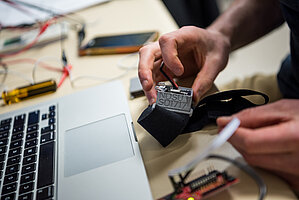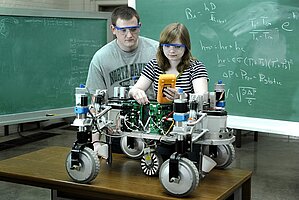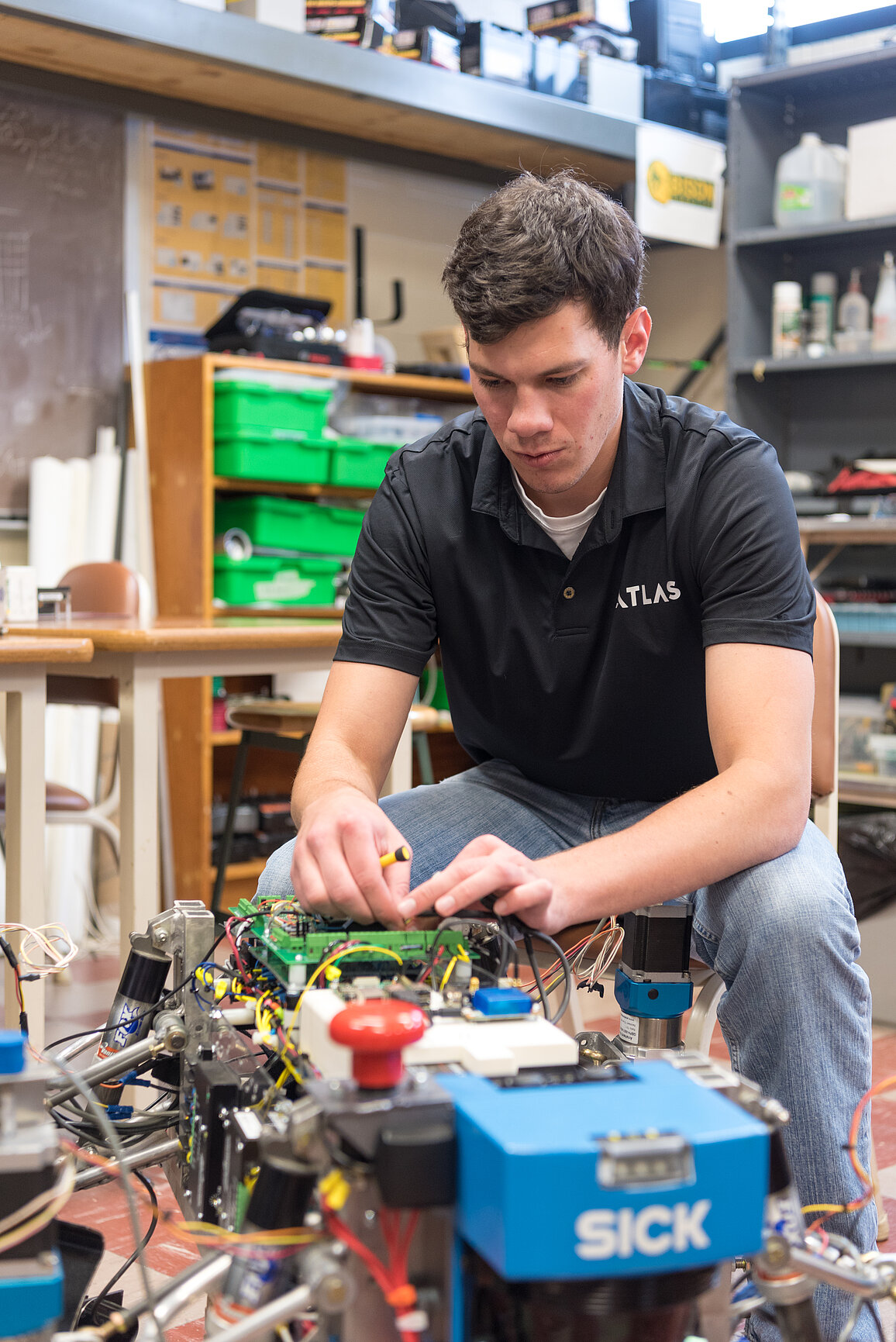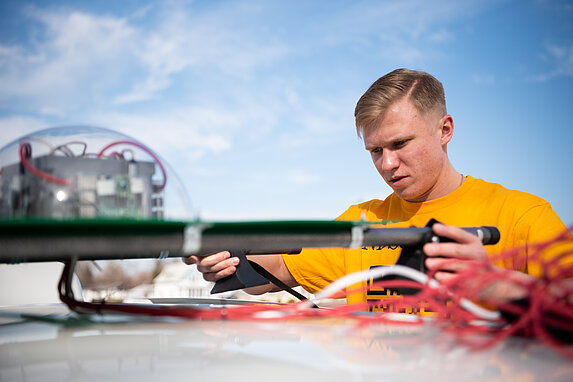The College of Engineering is excited to offer a minor in robotics. The program is open to any student in the college and is designed to give them the skills needed to design and develop robotic devices and use those devices to solve real-life problems.
The new robotics minor will offer 18 additional credits covering:
- Microprocessor programming
- Perception sensors
- Instrumentation
- Actuation systems
- Control principles
- Robot manipulation
Courses are designed to have extensive hands-on activities so students can directly relate what they learn to the real world.


There has been rapid growth in the need for engineers and computer scientists with the technical skills needed to work in the field of robotics. Graduates of the robotics minor program will be ready to work for a wide-range of industries including:
- Drone manufacturers
- Civil structure inspection agencies
- Precision agriculture
- Industrial manufacturers
- Automotive companies
- Aerospace companies
- Energy and mining

Core Courses
Core courses are aligned in four areas. A student must take Introduction to Robotics and 6 credits from any two of the remaining three core areas. These courses could also count as part of a major degree such as a technical elective or even a core course for the major degree.
Robotics Principles
Introduction to Robotics (ENGR 321)
Core Programming
- Visual BASIC (CSCI 122)
- Computing Fundamentals (CSCI 227)
- Introduction to Computing (ECE 173)
Controls and Applications
- Electric Energy Application in Agriculture (ABEN 358)
- Autonomous Command and Artificial Intelligence for Robots (CSCI 485)
- Control Systems (ECE 461)
- Modern Control (ECE 463)
- Automated Manufacturing Systems (IME 482)
- Automatic Controls (ME 475)
Measurements and Actuation
- Fluid Power Systems Design (ABEN 479)
- Instrumentation and Measurements (ABEN 482)
- Introduction to Intelligent Infrastructure (CE 782)
- Instrumentation for Engineers (ECE 483)
- Engineering Measurements (ME 412)
- Mechatronics (ME 476)
Approved Courses
Students must earn an additional 9 credits from approved courses. If the course has been counted as a core course, then it won’t count as an additional course in this category. The additional course could also be part of a major degree, serving as a technical elective or even a core course for the major degree.
Artificial Intelligence and Machine Learning
- Topics on Personal Computers (CSCI 345)
- Introduction to Artificial Intelligence (CSCI 426)
- Intelligent Agents (CSCI 436)
- Autonomous Command and Artificial Intelligence for Robots (CSCI 485)
- Human-Computer Interaction (CSCI 488)
- Neural Networks (IME 774)
Perception and Data Processing
- Applied Digital Signal Processing (ECE 444)
- Image Analysis (ECE 448)
- Instrumentation for Engineers (ECE 483)
- Engineering Measurements (ME 412)
- Instrumentation and Measurements (ABEN 482)
Electric Machines and Control Systems
- Embedded Systems (ECE 376)
- Control Systems (ECE 461)
- Modern Control (ECE 463)
- Advanced Embedded Systems (ECE 476)
- Automatic Controls (ME 475)
- Mechatronics (ME 476)
Kinematics and Dynamics of Machineries
- Machinery Analysis and Design (ABEN 478)
- Fluid Power Systems Design (ABEN 479)
- Advanced Control Theory (ECE 761)
- Machine Design (ME 442)
- Vehicle Dynamics (ME 489)
Applications of Unmanned Systems
|
|




